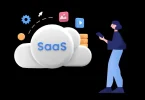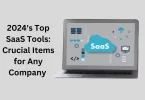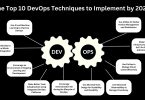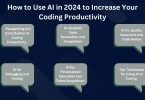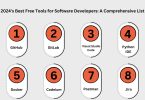Currently, Python stands as one of the most adaptable and sought-after programming languages within the realm of IT. Impressively, the global community of Python developers has reached a staggering 8-9 million and is steadily on the rise. In sync with this surge, the starting salary for Entry-Level Python Developers in India hovers around 4-6 LPA, underlining the language’s profound professional prospects.
Python’s allure lies in its multifaceted nature, bolstered by attributes such as its intuitive syntax and dynamic typing. This renders it exceptionally inviting for newcomers to dive into the world of programming. Beyond the surface, Python’s significance is accentuated by its pivotal role in cutting-edge domains like Artificial Intelligence, Machine Learning, and Big Data. These innovative fields heavily lean on Python due to its adeptness in handling their intricate demands. Delving into Python through well-structured approaches opens a realm of possibilities, promising a trajectory toward a triumphant career. The language’s richness unfolds as you grasp its intricacies, paving the way for success in various professional avenues. Before we proceed, let’s have a concise introduction to the Python programming language. Created by Guido Van Rossum in 1991, Python stands as a versatile, general-purpose programming language. Its broad applicability extends across domains like Web Development, Data Science, Machine Learning, and several other cutting-edge fields in the tech landscape. Python’s versatility shines through its support for various programming paradigms, bolstered by an extensive collection of libraries and tools. The language’s merits include enhanced code readability, robust community backing, streamlined code structure, and numerous other advantages. In this article, we’ll delve into a comprehensive curriculum or roadmap tailored for acquiring Python proficiency within a span of 15 days.
Day 1: Grasping the Fundamentals:
Your first objective is to delve into Python’s foundation. Start by familiarizing yourself with the Python language’s core concepts. Explore its foundational ideas, distinguishing characteristics, and a variety of applications across fields. Alongside this, I learned more about installation processes and the skill of setting up the proper path to run Python programs. Create your first Python program as a crucial first step. This straightforward but educational exercise will acquaint you with the nuances of syntax and the conventions for program execution. Additionally, widen your arsenal for effective coding by investigating a variety of Integrated Development Environments (IDEs), including PyCharm, Jupyter, and other famous possibilities.
Day 2: Mastering DataTypes, Variables & Operators:
Enter the next stage by learning about the fundamental components of Python: variables, datatypes, and operators. The dynamically typed architecture of Python makes it unnecessary to declare variables before use in a dynamic context. Immerse yourself in the world of Python’s built-in Datatypes, which include Numeric, Boolean, Sequence Types, and more. Accept the world of Python operators, their variety of functions, and how they work along with the language’s features. Enhance your understanding by practicing on the job and creating straightforward programs that clearly and precisely explain these topics. Your knowledge and fluency will be solidified by this comprehensive practice.
Day 3: Embracing Python’s Conditional & Flow Control
It’s time to delve into the world of conditional statements and the complexities of control flow, building on your knowledge of Python’s fundamental concepts, variables, and operators. The flexible For Loop, the iterative While Loop and even the less frequent Do-While Loop are just a few of the key ideas that make up Python’s program flow management. The If, If-Else, and the art of successfully layering these conditions are all included in conditional statements, which is equally important. Explore these ideas thoroughly to grasp their intricacies and practical applications. Engage with these concepts by answering programming challenges that highlight their application and efficacy to gain a solid understanding. Explore related subjects as well, such as Control Statements like Break, Continue, and Pass, to learn how important they are for optimizing program execution. This in-depth investigation improves your comprehension of Python’s control structures, making you skilled at handling issues involving program logic and decision-making.
Day 4: Exploring Python’s String, List & Dictionary Mastery
Begin to understand the art of manipulating Strings, Lists, and Dictionaries in Python once you have a firm grasp on the earlier topics. Explore the world of dictionaries, an unorganized collection of key-value pairs that serves as a flexible storage system. Recognize the fundamentals of Lists as mutable data structures providing ordered element sequences and Strings as dynamic arrays encoding Unicode characters in the meantime. Discover the possibilities and uses of these structures by becoming familiar with their inner workings. As a bonus, explore related subjects like Sets and Tuples to expand your knowledge of Python. This exploration gives you the tools you need to use these data structures effectively, improving your capacity to handle and work with various datasets.
Day 5: Navigating Python Functions & Modules
It’s time to take a decisive step ahead and become familiar with Python’s fundamental building blocks, Functions, and Modules. Explore the complexities of Python functions over the course of these three days, covering topics including function types, function construction, invocation, and managing arguments. This thorough trip gives you the tools you need to create functions that are suited to certain tasks, a skill essential to effective coding. As we move on to modules, understand that they are essentially files that contain Python definitions and statements. This encapsulation encourages code organization and reuse, two characteristics of effective programming techniques. Learn about important concepts like Python Closures, Packages, and the adaptable Lambda functions to expand your knowledge and equip yourself with more effective coding tools. You’ll be able to write modular, effective, and structured code by the end of this lesson, a valuable skill in any programming project.
Days 6-9: Exploring Python’s File Manipulation Mastery
It’s time to delve into the complexities of File Handling and Operations as we continue to explore the core of Python programming. The powerful file-handling facilities of Python provide a flexible toolkit for managing different file types. Spend the next two days immersed in understanding a variety of file operations to make sure you are skilled at managing data storage. Learn the fundamentals of reading and writing files, a prerequisite for manipulating data. Learn how to open and close files precisely and how to extract data line by line. Explore the world of operations like “open(),” “split,” and “append” to solidify your command of these basic file procedures. Along with this, learn about related subjects like Python’s seek function to improve your data access and manipulation skills. After completing this phase, you’ll be equipped with the knowledge needed to easily access, change, and extract information from a variety of file formats.
Days 9-11: Embracing Object-Oriented Mastery in Python
Start a new chapter in your Python journey by getting acquainted with Object-Oriented Programming (OOP). You will explore the Python OOP paradigm over the course of the following three days, which will serve as a crucial building block for your educational journey. Start with understanding the essential ideas of OOP, including classes, objects, and instances. Explore the depths of inheritance, polymorphism, and encapsulation, three fundamental OOP concepts that support Python’s object-centric model. Explore other important topics like data hiding techniques, creating complex object printing, and understanding the subtle differences between Python constructors and destructors. This thorough investigation gives you the skills to master Python’s OOP features, empowering you to design organized, effective, and flexible programs. After completing this phase, you’ll have a powerful toolbox to use Python’s object-oriented programming capabilities to create sophisticated software solutions.
Days 11-13: Navigating Advanced Python Realms: Regular Expressions & Exception Handling
After navigating the fundamental and intermediate Python toolkit domains, it’s time to explore the advanced realm. Explore the nuances of Exception Handling and Regular Expressions over the course of three days to advance your coding knowledge. Begin learning Exception Handling, a crucial skill for writing reliable and error-tolerant programming. Learn how to handle unexpected situations by exploring the many elements of Python’s errors and exceptions. Discover a world of built-in exceptions, user-defined exceptions, and Python’s Try-Except system to strengthen your code against flaws. A useful tool for pattern matching within strings is Regular Expressions. Move on to them. Learn how to effectively create and use search patterns, a powerful method for effective data extraction and manipulation. Consider expanding your arsenal for thorough software development by exploring Python Database Interaction and other related topics. After finishing this lesson, you’ll be able to use pattern-based string manipulation and the ability to skillfully handle errors, two essential skills for solid programming and data management.
Days 13-15: Exploring Advanced Horizons: Multithreading & Python CGI
Begin exploring the complexities of advanced ideas to increase your competence in this final stage of your intensive Python learning adventure. Explore multithreading, where threads come together to speed up concurrent execution. To multitask effectively and seamlessly, you must master the nuances of the Thread Control Block, the subtleties of forking threads, and the important art of thread synchronization. Expand your knowledge of Python CGI, a bridge that connects web servers and browsers. Understand the workings of CGI programming, a driving force behind dynamic web interactions, and a demonstration of Python’s convergence with web development. Consider extending your knowledge by researching Python Collections and other important subjects to improve your data organizing and manipulation abilities. After completing this phase, you’ll be well-versed in advanced concepts, prepared to handle challenging programming situations, and able to make a significant contribution to the dynamic software and web development industries.



